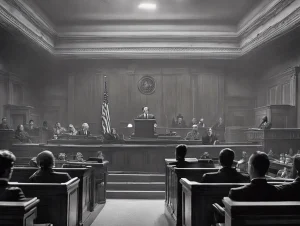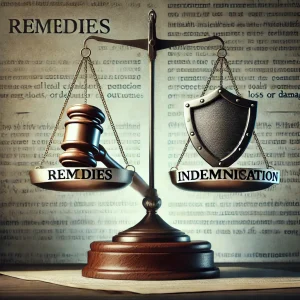“Is”, “is.” “is”—the idiocy of the word haunts me. If it were abolished, human thought might begin to make sense. I don’t know what anything “is”; I only know how it seems to me at this moment.
Would you like to clarify your thinking? Construct more persuasive arguments? Improve your writing? Reduce misunderstandings? You can. Just avoid using the verb to be.
To be creates problems because we tend to use it like an equal sign. We say, “The cat is white.” But cat and white are two different concepts. Cat denotes an animal. White denotes a color. If we can’t use is, we must instead say something like, “The cat has white fur”—a more accurate statement.
In the English language, the verb to be has at least seven distinct functions: identity (The cat is Garfield), class membership (Garfield is a cat), class inclusion (A cat is an animal), predication (The cat is furry), auxiliary (The cat is sleeping), existence (There is a cat), and location (The cat is in the hat).
Alfred Korzybski, a Polish-American scholar who once served as a Russian intelligence officer, felt two forms of to be—identity and predication—had structural problems that often led to circular definitions. More generally, he believed our need to experience the world through language frequently led us to faulty conclusions, and he developed a discipline called general semantics intended to help avoid this.
D. David Bourland, Jr. studied under Korzybski. Bourland agreed that our use of to be often caused faulty reasoning, and in the late 1940s he began experimenting with a form of English that eliminated any form of to be. He named this form of English “E-Prime” (short for English-Prime). He published an essay on it in 1965. Bourland’s essay generated controversy, and continues to today, but for lawyers E-Prime offers many benefits:
1. E-Prime reveals the observer. The statement “The earth is round” conveys an impression of completeness, finality, and time-independence. It sounds like an absolute truth, just as the statement “The earth is flat” once sounded like an absolute truth. Using E-Prime, we must instead say something like, “The earth looks round to me.” This reveals an observer, and observers may have flaws in perception.
2. E-Prime forces us to distinguish between ourselves and others. Instead of saying, “The people are opposed to the proposed legislation,” we must say something like, “57% of the voters oppose the proposed legislation.”
3. E-Prime prevents us from passing off our opinions as fact. Instead of saying, “That is a terrible decision,” we must say something like, “I do not agree with the court’s reasoning in that decision because . . . ” Bourland referred to use of to be as a “Deity mode of speech,” which “allows even the most ignorant to transform their opinions magically into god-like pronouncements on the nature of things.”
4. E-Prime helps avoid broad assertions crossing boundaries between past, present, and future.In E-Prime we can’t say, “Your client is untruthful,” which suggests a permanent state, but must instead say something like, “A jury convicted your client of perjury in 1995.”
5.E-Prime avoids using passive voice. Instead of writing, “Your client’s claim will be considered by our claims department,” we must instead write something like, “Our claims department will consider your client’s claim.” We’ve just gone from a sentence with 10 words to one with only eight words. This can be useful when drafting motions or briefs subject to page limits. Avoiding passive voice also forces us to identify the responsible parties. Instead of saying, “Mistakes were made,” we must say, “Cindy made a mistake.”
6.E-Prime promotes accuracy and reduces ambiguities. To say, “She is a good judge” may create confusion because “good” may mean different things to different people. We may both consider her a good judge, but for different reasons. It is more accurate to say, “The Judicial Performance Commission gives her consistently high ratings” or “Her opinions are well written.”
7.E-Prime avoids judging and labeling. If we say, “Joe is Catholic,” we may immediately assume Joe holds certain views on political issues. If we say, “Joe attends the Catholic church,” we are less likely to stereotype Joe. Many psychotherapists, particularly those practicing rational emotive behavior therapy, now employ E-Prime with patients. When a patient tells himself, “I am fat,” he places a negative label on himself. Rational emotive behavior therapy requires that patient to instead say something like, “I weigh 15 pounds more than I want to.”
8.E-Prime promotes healthy discussion. If we tell someone, “You’re wrong,” it seldom goes over well. If instead we say, “I see it differently” and explain why, we may begin a healthy discussion.
9.E-Prime reduces hidden assumptions. We may say, “He is happy,” but we don’t know that. We improve accuracy by saying, “He smiles a lot” or “He appears happy.”
10.E-Prime improves creativity. Instead of saying, “There are no solutions,” we must instead say something like, “We have not yet found any solutions.”
11.E-Prime prevents generalizations and helps problem solving. Instead of saying, “Our client is difficult,” we must instead identify the problem and say something like, “Our client has unrealistic expectations.” Having identified the problem, we can then consider possible solutions.
12. E-Prime makes us more aware of how we use language and how it impacts thinking. Learning E-Prime feels like learning a new language. But instead of learning new constructs, you unlearn what you think you already know.
For all these reasons, E-Prime can improve relationships, communications skills, and your skills as a lawyer. When you learn to “think in E-Prime,” you’ll draft better documents and make your pleadings more precise. You will write something, but then you will stare down at it, see some form of to be, and ask yourself whether you can be more precise. This precision will pay dividends down the road because your pleadings won’t contain generalizations opposing counsel can later use against you.
Thinking in E-Prime benefits litigators and trial lawyers. For instance, in a Fortune 100 company’s Annual Report, the CEO wrote, “I’m excited that we are leaders in integrating digital and physical retail in a seamless fashion.” Now imagine you are deposing that CEO about that assertion. The assertion “We are leaders” raises endless questions. In whose opinion is the company a leader in that area? What data does the company possess to support that assertion? Did the company conduct polls to determine what companies are considered leaders in that area? If so, who designed the poll? Who conducted it? When? Did the company analyze data to compare its performance in that area to that of its competitors? If so, what data did the company collect and who has the data now?
When you see “is” in a pleading, your E-Prime radar should alert you that you need to examine it. When you hear “is” during a deposition or in testimony, your ears should stand up like Scooby Doo’s and you should think, “Ruh Roh.” It means you need to question or probe.
So, give E-Prime a try. If nothing else, it will exercise your brain. But be mindful that there may be times when E-Prime interferes with brevity or some higher artistic purpose. It is probably good that Elvis sang, “You ain’t nothin’ but a hound dog” rather than, “You possess many of the qualities hound dogs possess.”






